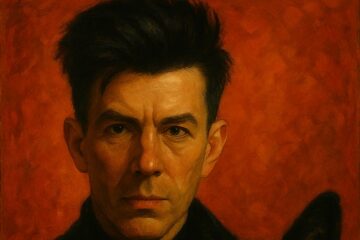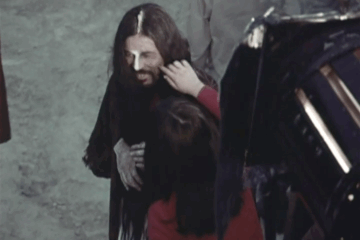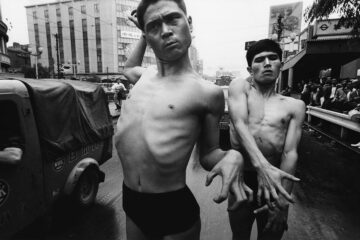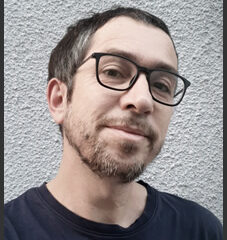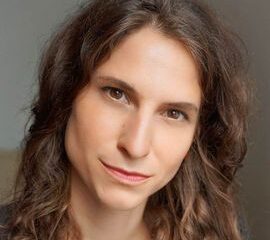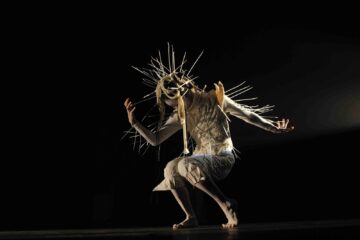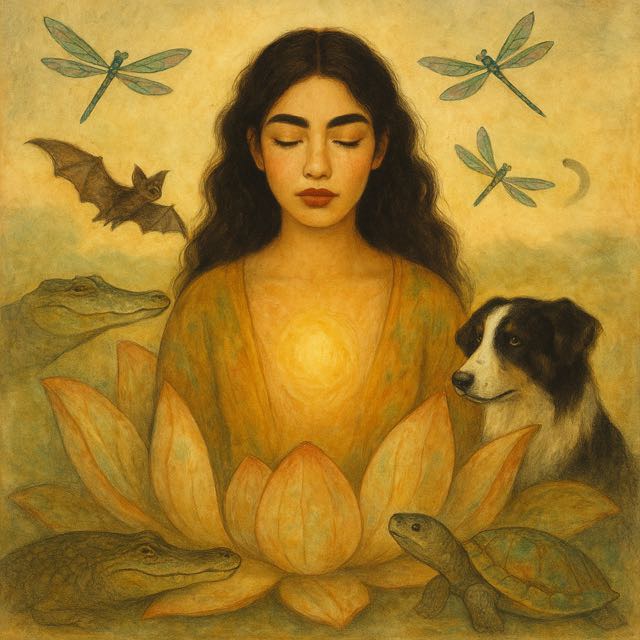In this episode of Fem*Poem, Romina Achatz is in conversation with activist, multidisciplinary artist, curator and artistic director of perfocraZe International Artists Residency (pIAR, Kumasi, Ghana), Va-Bene Elikem Fiatsi, also know as CrazinisT artisT. They talk about Performances, Politics of the Body, (Post)Colonialism, genderfluidity, human rights, the advantage of living without a fixed identity, but rather wanting to inventing oneself every day new, the Ghanaian LGBTQI+ Community and being publicly Trans in Ghana.
Va- Bene Elikem Fiatsi was born 1981 in Ho (Ghana) and describes herself as a an avatar. Her* works investigate the “culturality” of gender stereotypes and sexual misrepresentation, questioning the extreme quest for socio-cultural supremacy over marginalized people, political injustice, violence, vulnerabilities, human sense of mortality and objectification of otherness. However, crazinisT uses the body as a thought provoking tool and material that confronts and exploits the stereotypical aesthetics of marginalized citizens within ‘so-called’ civilized societies while exploring ‘rituals of identity’, gender fluidity and the sense of belongingness. CrazinisT has been actively engaged in contemporary practices since 2012, traveling around the world, collaborating with countless artists, fighting for human justice with her art and everydaylife. She confronts not only the white supremacy with the history of slavery, of Colonialism and it’s cultural impact- including their ideas and invention of 2 genders.
Artist statement:
I believe performance is an embodiment of life, perhaps subtle but intensive and ephemeral, which could provide an intimate dialogue between the performer/s and the audience (co-performers). It is important using performance as a potent medium to re-examine our own colonial history from dynamic experiences. However, the subject of Gender, sexuality, race and being privileged seem as residues from several colonial past, experiences and [post-religious] debates for autonomy, cultural authenticity and the politics of power.
As an artist whose work provoke thoughts and emotions on our own sense of mortality and vulnerability, I engage the body into performative works of art as set of rituals that assists in evoking our continuity and discontinuity to the ‘Other’ and ‘Self’, trying to give new meanings to the concept ‘being’. While exploring the politics of Identity, class, gender, sexuality, human vulnerabilities, and our own sense of mortality, I present my body as a violation, taboo and pleasurable object of violence through simple but complexly layered rituals to my audience. In my performances, silence and meditation is to seduce the audience to participate in the habitual [shamanic] gestures by deeply evoking emotional dialogues as process and product of performance art, which at the same time collapses the walls between the audience and the performer. To be a shaman in my rituals is a metaphor of being an intermediate between the privileged and the marginalised, speaking the language of silence as an artistic responsibility to question the conscience of humanity.
However, my investigations as an activist and artist employ experimental cross-disciplinary works, which cut across performances, installations, videos, sounds and photography while exploring the notions of [belongingness] and relationship between the body and the world. I seek to provoke and question the cultural frictions between gender performativity, race, sexual prejudice and its misrepresentations
*”[sHe/it…]” is my bio-political pronoun. Note: Any one/any institution can ‘responsibly’ use any pronoun of their preference for me otherwise just use “sHit”
Jingle- Voice by multi- media artist Raphaela Salhofer








